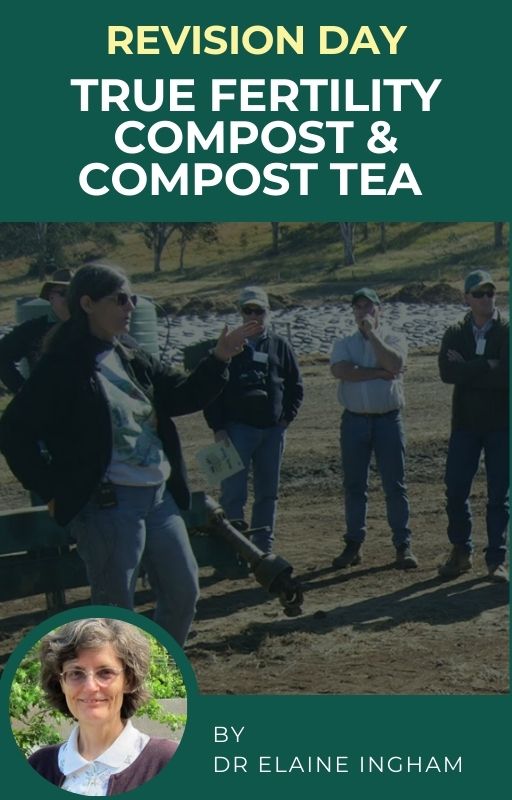Dr. Elaine Ingham – Compost & Compost Tea Revision Day
“Revision Day” has past attendees sharing, questioning and deepening their knowledge from practical experiences learnt since applying the skills from previous attendance in past year at the “True Fertility Workshop – Combining Soil Biology, Chemistry and Structure”. It was a great opportunity to get in depth answers on the spot from Elaine.
Highly Recommended 4.8
★★★★★ 5/5
- Dr Elaine Ingham
- All Levels
- English

- Take this course now!
AUD $97.00
[sts_sales_trigger]
This course includes:
- Lifetime access to the course
- Downloadable Materials
- Access to mobile and desktop
- Access to Regrarians Workplace with Private Study & Support Group
- Certificate of Completion
PLUS: 30-Day Money-Back Guarantee


